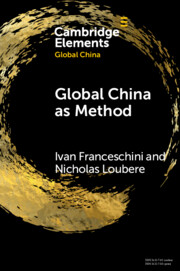Refine search
Actions for selected content:
7 results
12 - Doughnut Privacy
- from Part III - Technology and Policy
-
-
- Book:
- Being Human in the Digital World
- Published online:
- 11 November 2025
- Print publication:
- 20 November 2025, pp 185-204
-
- Chapter
-
- You have access
- Open access
- HTML
- Export citation
11 - Conclusion
-
- Book:
- Propaganda in Autocracies
- Published online:
- 18 July 2023
- Print publication:
- 14 September 2023, pp 443-466
-
- Chapter
- Export citation
6 - Labor and the Platform Economy
- from Part I - Cross-Cutting Foundations and Norms for the Sharing Economy of Tomorrow
-
-
- Book:
- Reengineering the Sharing Economy
- Published online:
- 30 March 2023
- Print publication:
- 06 April 2023, pp 83-94
-
- Chapter
-
- You have access
- Open access
- HTML
- Export citation
Notes
-
- Book:
- You Can't Always Say What You Want
- Published online:
- 12 January 2023
- Print publication:
- 28 February 2023, pp 229-250
-
- Chapter
- Export citation

Global China as Method
-
- Published online:
- 15 July 2022
- Print publication:
- 25 August 2022
-
- Element
-
- You have access
- Open access
- HTML
- Export citation
2 - Digital Surveillance, Meta Data and Foreign Intelligence Cooperation
-
-
- Book:
- Strengthening Human Rights Protections in Geneva, Israel, the West Bank and Beyond
- Published online:
- 13 August 2021
- Print publication:
- 26 August 2021, pp 40-60
-
- Chapter
- Export citation
10 - The 2010s
- from Chapter 10 – 2010s
-
-
- Book:
- The Chinese Communist Party
- Published online:
- 06 May 2021
- Print publication:
- 06 May 2021, pp 213-230
-
- Chapter
- Export citation
